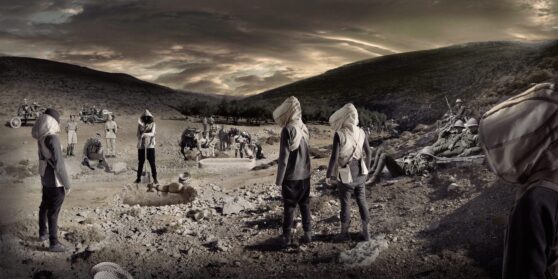I am not a prophet. Science fiction is really about now.
Science fiction is not predictive. It’s descriptive.
This November we launch a new film series, Alternate Realities: Science Fiction from Across Asia. But don’t think of Star Wars. These films might be better called “lo-fi sci-fi,” independent creations that use the real world to speculate on the future, or to examine the ways in which our own times have come to resemble an alternate reality. The historical precursors are movies like Jean-Luc Godard’s Alphaville (1965), which turned Paris’s streets into the titular future city without using one special effect. Andrei Tarkovsky’s Stalker (1979), which used Tallinn, Estonia, to similar effect, and John Akomfrah’s The Last Angel of History (1996), which blends science fiction and documentary, are other examples. So much of this work is emerging – from Southeast Asia to the Middle East – that it demands celebration.
As a cultural aesthetic, Afrofuturism refers to books, films, and other media that depict the African diaspora experience through science fiction. The novels of Samuel R. Delany and Octavia Butler are considered seminal works of the genre, which reached its pop culture apogee with Ryan Coogler’s movie Black Panther in 2018.
In The Last Angel of History, the fictional Data Thief, who has traveled from the future to study our society, wonders why three different musicians—Sun Ra, George Clinton, and Lee “Scratch” Perry—separately developed musical personas based on the idea that being Black in a white-dominated world is very much like being an alien from another planet. Similarly, perhaps we might wonder why today filmmakers from the Philippines, Turkey, and the Palestinian Territories all hit upon the idea of using science fiction tropes to critique the political realities of their respective societies. Or why filmmakers from Thailand and Vietnam simultaneously adapted Akomfrah’s mix of the fantastical and the nonfictional in their work.
Lav Diaz’s The Halt (Philippines, 2019) and Orçun Behram’s The Antenna (Turkey, 2019) exaggerate the actual political atmospheres of their countries just enough to reveal the nightmares below their surfaces. In Larissa Sansour’s In the Future They Ate from the Finest Porcelain (United Kingdom, 2016) a “narrative resistance” group plants evidence of a fake ancient civilization—an allusion to the Israeli/Palestinian conflict. Ben Rivers and Anocha Suwichakornpong’s Krabi, 2562 (Thailand, 2019) includes both interviews with actual residents of the titular tourist town and a number of mysterious narrative threads. Finally, Truong Minh Quý’s The Tree House (Vietnam, 2019) uses contemporary and archival documentary footage but is narrated by a fictional character living on Mars in 2045.
Sansour and Sophia Al-Maria, another filmmaker whose work appears in the series, are considered pioneers of the burgeoning Arab Futurism movement in art, literature, and film. Considering that the series includes features from Thailand, Indonesia, the Philippines, Laos, and Vietnam, perhaps a Southeast Asian Futurism movement is brewing as well. But maybe we shouldn’t concern ourselves with categories. If there’s anything that unites this thematically and regionally diverse set of films, it’s that they prove the Atwood and Le Guin quotes above by using science fiction to hold up a mirror to our world today.


